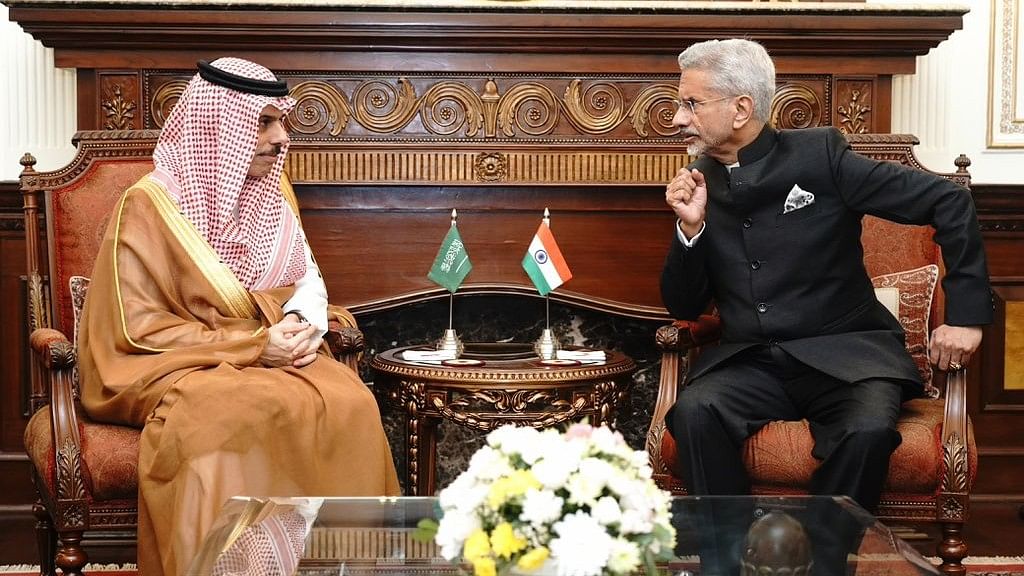
S Jaishankar (right) with Faisal bin Farhan during their meeting in Delhi.
X/@DrSJaishankar
New Delhi: After Saudi Arabian crown prince Mohammed bin Salman accused Israel of committing “collective genocide” in Gaza, New Delhi conveyed to Riyadh that it was also “deeply pained” by the continuing death of innocent civilians in the conflict, albeit without directly criticising Prime Minister Benjamin Netanyahu’s government in Tel Aviv.
As External Affairs Minister S Jaishankar and his Saudi Arabian counterpart Faisal bin Farhan met in New Delhi, they exchanged views on regional and international issues, including the conflicts in West Asia.
“The situation in West Asia is a matter of deep concern, particularly the conflict in Gaza,” Jaishankar told Farhan as the two ministers co-chaired a meeting of the bilateral strategic partnership council in New Delhi.
“India’s position in this regard has been principled and consistent. While we condemn acts of terrorism and hostage taking, we are deeply pained by the continuing death of innocent civilians,” he added, but refrained from directly criticising Israel for the military operations it had launched in retaliation to the October 7, 2023, attacks by the terrorists of Hamas.
India was quick to condemn the terrorist attacks carried out by Hamas, but also started expressing concerns over the death of civilians in retaliatory strikes by Israel in Gaza.
“Any response must take into account the international humanitarian law. We support an early ceasefire,” Jaishankar said during his meeting with Saudi Arabian foreign minister.
Over 43,000 Palestinians, including women and children, were killed in military operations by the Israel Defence Force in Gaza. Israel’s offensive against Hezbollah also resulted in the death of over 3200 people in Lebanon.
The meeting between Jaishankar and Farhan took place two days after the Saudi Arabian crown prince hosted a summit of the leaders of the Arab League and the Organisation of Islamic Cooperation. The summit ended noting that “a just and comprehensive peace in the region” could “not be without ending the Israeli occupation of all occupied Arab territories to the line of June 4, 1967,” referring to the occupied West Bank and east Jerusalem as well as Gaza and the Golan Heights.
New Delhi has been calling for a negotiated two-state solution to the Israel-Palestine issue leading to the establishment of a sovereign, independent and viable State of Palestine living within secure and recognized borders, side-by-side in peace with Israel. After the BJP’s ascent to power in 2014, with India-Israel ties expanding, New Delhi, however, stopped supporting the demand for East Jerusalem to be the capital of the future state of Palestine.
Jaishankar and Farhan also discussed avenues to strengthen the strategic partnership between India and Saudi Arabia in the areas including trade, investment, energy, defence, security, culture and consular matters.
